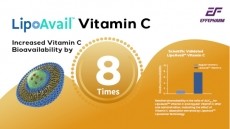Vitafoods Asia 2017
Chinese supplier aiming to bring monk fruit-based sweetener to Japan and Europe

Established in China in 1995, the company has been supplying its range of natural sweeteners to businesses in the country’s flavour, beverage and dairy industries, as well as selling table-top versions of the products to consumers.
While its monk fruit extract has been authorised for use in food and drink in the US, it is still waiting for approval of the product from EU authorities.
In January this year, Layn opened its first European office in Italy. In August, it submitted its dossier to the European Food Safety Authority (EFSA) for evaluation, and is currently awaiting a response.
Japanese ambition
Speaking to NutraIngredients-Asia at the recent Vitafoods Asia show, Layn VP Frank Xie revealed the company’s plans to bring the product to other parts of Asia, starting with Japan.
Considering Japan’s strict regulatory standards, he admitted this would be an ambitious move, but also said Japan was a crucial Asian market.
“In future, we would like to have a team in Japan, as it is a very important market for us. The Japanese require very high-quality products, and we have full confidence our products can match their expectations.”
The company was promoting its monk fruit-based sweetener, Go-Luo (which is up to 350 times sweeter than sugar), as well as its stevia extract at the Singapore show.
Domestic developments
Recently, Layn opened its Global Innovation Centre in Shanghai to drive its R&D efforts. There, it focuses on new formulations for its sweeteners, and provides lab support to domestic and foreign F&B and pharmaceutical manufacturers.
Xie said, “Our innovation centre in Shanghai is dedicated to R&D into making sweeteners for use in healthier sugar-less products, including baked goods, dairy and beverages.”
Around the same time, the company also set up a production facility in Guangxi — where it is headquartered — to quadruple its current production capacity and decrease production costs.
It has also turned its attention to China’s ageing population. Xie said, “In China, we have our own consumer products, such as candy, chewing gum and drinks that are meant specifically for the ageing population.”
Currently, 70% of its revenue comes from its natural sweeteners, and according to Xie, the company has seen an average annual growth of about 25% since 2015.
















